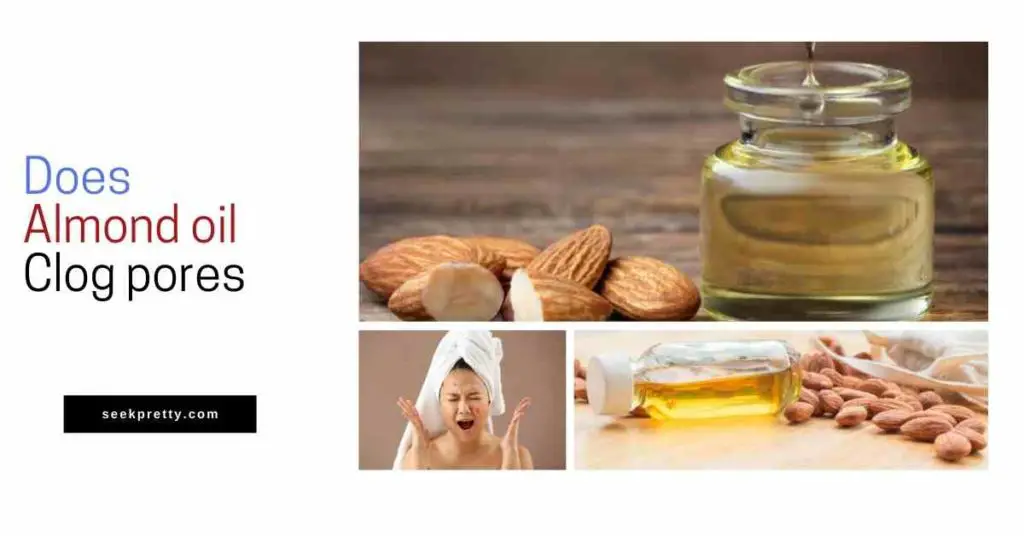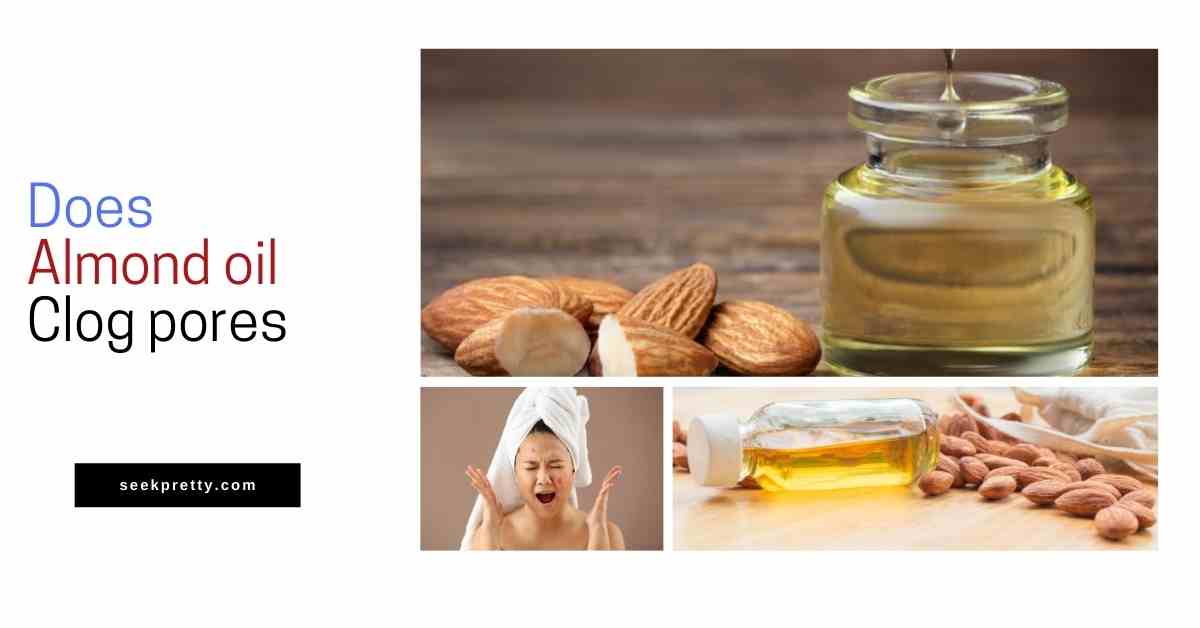Almond oil is mostly non-comedogenic, with a rating of 2 out of 5 on the comedogenic rating scale, meaning it most likely won’t clog your pores. This may not be the case if you have sensitive skin because there is a chance that you may be more prone to breakouts if you use almond oil. If you do experience breakouts after using almond oil, try switching to a different oil or product.
I often find almond oil used in my skincare products because its rich in vitamins A, B and E, as well as essential fatty acids that can help to nourish and protect your skin. It is also relatively light in texture, making it a good choice for use on all different skin types, even if you have sensitive skin. When used in skincare products, almond oil can also help to soothe dry skin.
Let’s take a look and see how we can avoid almond oil clogging our pores and whether it affects you if you have acne prone skin. I also want to show you how it compares with other oils used in skincare products with its comedogenic rating and look at a few alternative oils you might prefer to use depending on your skin type. One alternative oil I wrote about recently is Cocoa butter, which turned out to have a musher higher chance of clogging your pores when compared with almond oil.

Contents
How to avoid almond oil clogging your pores
If you are keen to experience the many skin friendly benefits of using almond oil but want to try to reduce the chance of your pores becoming clogged then the following step should help you.
There are a few things you can do to avoid breakouts when using almond oil. First, make sure you remove all makeup before applying almond oil. If you don’t remove your makeup first, the almond oil can actually trap dirt and bacteria on your skin, which can lead to breakouts. Second, always wash your face after applying almond oil.
This will help remove any excess oil that could clog your pores. Finally, try using a gentle almond oil product. If you have sensitive skin, look for an almond oil that’s been diluted with another carrier oil, such as jojoba oil or argan oil.
What does almond oil contain
Almond oil is rich in essential fatty acids, vitamins A, B, D and E, and minerals like magnesium, phosphorus, and zinc. Almond oil contain high levels of vitamin E which is good for your skin because it is an antioxidant. Antioxidants help to protect your skins cells from environmental damage and in doing so help to keep your skin looking younger and healthier.
Oleic acid is one of the fatty acids contained in almond oil.
Why use almond oil
Almond oil is an emollient which means that it balances out the amount of water your skin loses and how much moisture your skin absorbs. It can increase the softness and smoothness of your skin cells. Oils soak into the top layer of your skin and make it appear smoother, which is why they are often used in anti ageing products to try and smoothen out wrinkles.
I’ve heard of friends using almond oil after getting burnt in the sun as it can help soothe your skin and reduce inflammation, but for any sunburn I personally much prefer some cooling aloe vera lotion rather than almond oil because it feels much more soothing.
Does almond oil cause acne?
There are conflicting opinions on whether or not almond oil causes acne. Some say that it can actually help to clear up acne, while others believe that it can make breakouts worse. However, there is no definitive answer as to whether or not almond oil is good for acne-prone skin
Curing acne is one of the most difficult skincare issues we often face. When I was a teenager I suffered with acne for a number of years and tried all sorts of different health foods, vitamins, minerals and skincare products including almond oil and many other natural oils. I didn’t find much relief from any of the products I tried and it took a prescription to solve the problem for me so I’m not that confident in skincare products curing or causing acne as in a lot of cases or more severe acne it’s hormonal.
Almond oil has a very low comedogenic rating so is much less likely to cause a breakout if you also wash, cleanse and look after your skin well. The list of vitamins contained in almond oil, which I wrote about above, could help reduce acne symptoms in some cases so rather than causing acne there is a chance of some relief with almond oil, even if it didn’t work out for me. This is because the vitamins are anti-inflammatory in nature and this can sometimes reduce redness and swelling if you have acne prone skin.
Is almond oil non comedogenic
Almond oil is often classed as non comedogenic. However, there is a scale of how comedogenic, oils are, and even though people often claim an oil is comedogenic or non comedogenic, oils usually sit somewhere in the middle. Almond oil is usually classed as non comedogenic because it sits on the lower end of the chart with a rating of 2 out of 5, with 5 being the highest and 0 being the lowest level.
You probably want to know whether or not almond oil is comedogenic because you are looking to avoid skincare ingredients that contain thick oils that can block your facial pores more easily. Almond oil is low on the scale so is suitable for most skin types and won’t clog your pores. It isn’t at the very bottom of the scale and completely non comedogenic though, so if you have very oily skin or acne prone skin don’t overuse it.
Alternative oils
I’ve written about a number of different oils used in skincare products, with the aim of trying to save you some time and help you find the right oils to try out when you choose your next face moisturiser or body cream. When compared with the oils in the table below, Almond oil is similar to Brazil nut oil. If you are looking an an oil that is less comedogenic then cloudberry seed oil is great for greasy oily skin. If your skin is very dry you might want to try coconut oil or wheat germ oil.
The comparison columns below will show you a selection of oils and how likely they are to block your pores. The higher the number the more likely they are to clog pores, with 5 being the most likely. Click on any highlighted oil names to read about whether they clog pores or not.
Oil
Almond oil
Coconut oil
Brazil nut oil
Cloudberry seed oil
Wheat germ oil
Comedogenic rating
2
4
4
2
1
5
2
Final thoughts
Almond oil contains oleic acid which is excellent for dry skin. It also has vitamin A which is a retinoid often used in anti-ageing creams and can help to repair tissues and fight free radicals. Almond oil is a light oil that is easily absorbed into your skin and its non-greasy and won’t clog pores like other comedogenic oils might.
I don’t think almond oil is likely to cause acne if your skin care routine involves a good cleanser and you take good care of your skin. In some cases the antioxidants, retinoid and high levels of vitamin E may even help reduce your acne. Whether or not it helps with your acne it’s worth a try and as the oil soaks into your skin so easily its a good oil to start off your journey into trying out and experimenting with different oils in your skincare products.

